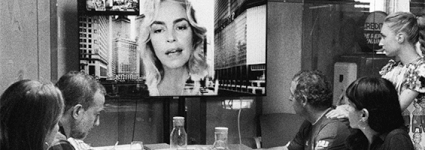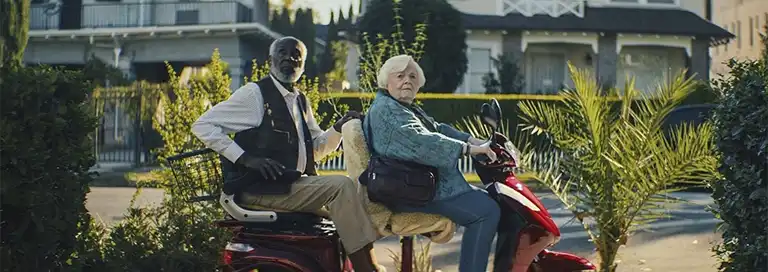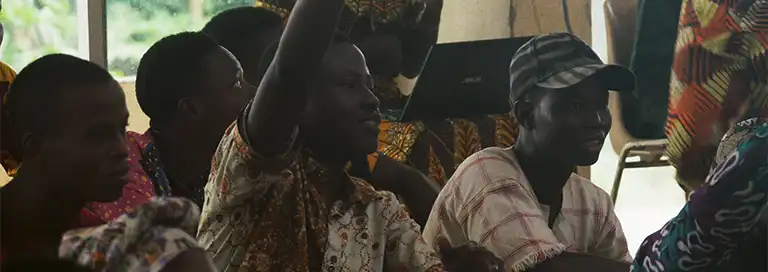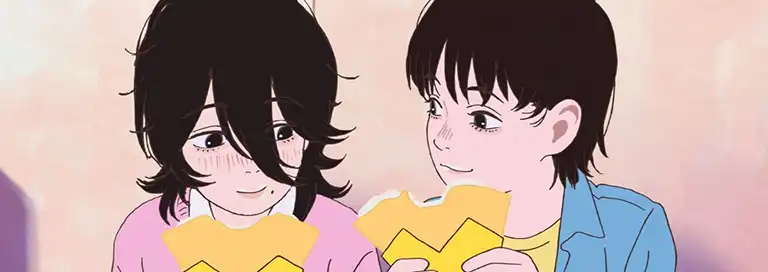There are few filmmakers as sharp as Romanian Radu Jude when it comes to questioning, critiquing, or simply moking our contradictions – and blatant failures – as postmodern humans. Do Not Expect Too Much From The End of The World continues the director's acerbic and incisive style. The plot follows Angela, an exploited and underpaid audiovisual producer who, ironically, must cast among injured workers from a corporation to film a video about the importance of workplace safety. In her spare time, she records TikTok videos as her alter ego created with a camera filter, "Bobita," a misogynistic man who satirizes macho culture. The film exposes the double standards and predation of an economic system where we victimize and exploit each other (or even ourselves) in front of the camera. Jude suggests, with irony, that the end of the world will not be a great apocalyptic explosion: we are already living it, and humanity will die in an audiovisual dump where dignity is sacrificed at the altar of the rich and powerful. – Lalo Ortega, editor-in-chief of Filmelier
Dune: Part Two is a film with as many lovers and detractors—many have recently criticized director Denis Villeneuve's style as too clinical. I disagree. This film is an epic like we haven't seen in a long time, capturing much of the magic of Frank Herbert's books. The plot is more engaging than the previous film, with Paul Atreides (Timothée Chalamet) and his mother, Lady Jessica (Rebecca Ferguson), hiding in the dangerous desert of planet Arrakis with the native Fremen, whose customs they must learn while trying to find a way to resist the Harkonnen. In the process, Paul fights against his destiny as the Lisan al Gaib, destined to free the Fremen at a great cost. It’s an intense film that keeps viewers glued to their seats, highlighting the political game in this universe so well reconstructed by Villeneuve for the big screen, after two failed attempts by other filmmakers. It deserves to be on the list for this reason. – Matheus Mans, editor of Filmelier.
Filmmaker Mati Diop (Atlantique) is at her best in Dahomey, a short documentary just over an hour long that follows the repatriation of royal treasures looted from the Kingdom of Dahomey, which are returning to Benin after decades on display in Paris. Giving voice to these treasures, Diop adds an almost mythical aura to the documentary, which alternates between moments of patient observation and others in which a deep, almost otherworldly voice makes the treasures question their histories and importance. In the final part, Diop expands the discussion by showing a university debate. Thus, Dahomey becomes a film about the re-signification of history. Past, present, and future in a single piece – and three different meanings. Beautiful. - Matheus Mans
As every year, the 2024 animation lineup was dominated by the big studios, which makes it easy to overlook smaller proposals – in scale and duration – but just as beautiful and worthy. Such is the case of Look Back, a film adaptation of the eponymous manga by Tatsuki Fujimoto (Chainsaw Man). It is a beautiful story about two unlikely friends who, during high school, begin working together on their dream of becoming manga artists. In addition to featuring flawless animation with a color palette that evokes its underlying melancholy, it is a wonderful story with curious yet tragic twists that speaks of the inseparable – and inevitable – connection between artistic creation, life, and death. – Lalo Ortega




